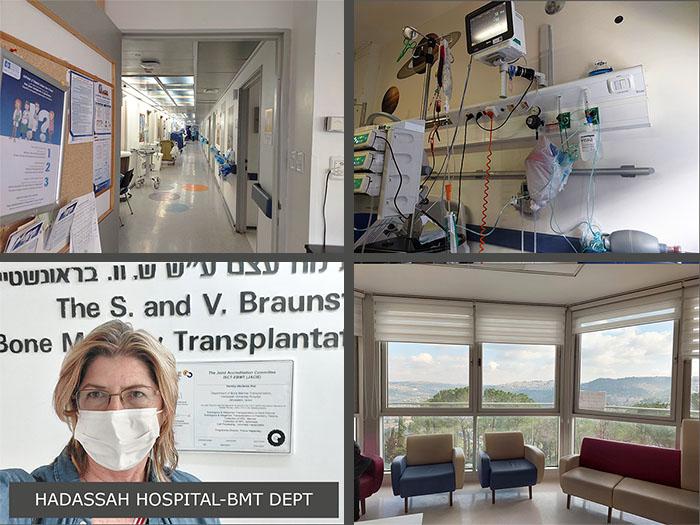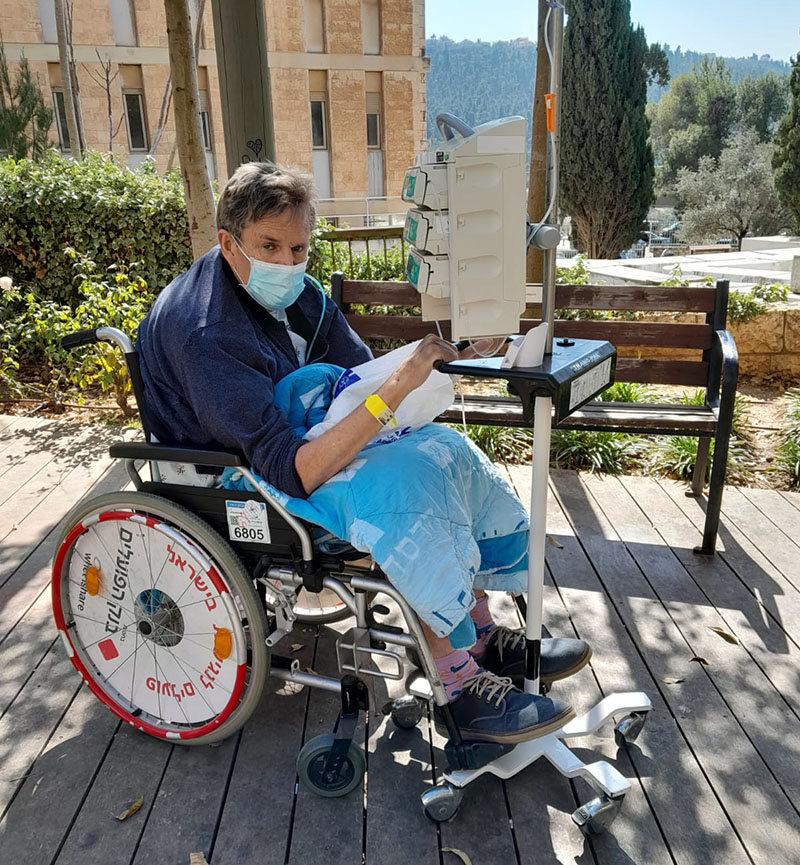Multiple Myeloma is a type of cancer that affects plasma cells in bone marrow. When multiple lines of treatment fail, CAR-T therapy can be a promising option. Hadassah Hospital in Israel, led by Professor Polina Stepensky, is offering CAR-T therapy for multiple myeloma patients who have failed three lines of treatment. The program is offered through a clinical study approved by the Helsinki Committee and the Israeli Ministry of Health.
What type of CAR-T cell therapy is used in Hadassah hospital?
Hadassah Hospital has teamed up with NexImmune, an American biotechnology company that specializes in immune-oncology therapies, to create its own patented CAR-T treatment called NXC-201. NXC-201 CAR-T therapy yielded a 90% overall response rate (ORR) in participants with relapsed/refractory multiple myeloma. (Feb 2023) Read More >
How Does CAR-T Therapy Work?
CAR-T therapy is an innovative form of cancer treatment that has shown promising results in treating multiple myeloma. This therapy involves using genetically engineered T-cells, a type of white blood cell, to attack cancer cells in the body.
CAR-T therapy involves collecting lymphocytes from the patient's blood and sending them to a manufacturing laboratory, where they are modified to recognize and attack cancer cells. After 10 days of processing, the modified lymphocytes are infused back into the patient's body.
To begin the process, T-cells are extracted from a patient's blood and sent to a lab for genetic modification. In the lab, the T-cells are modified to express chimeric antigen receptors, or CARs, on their surface. These CARs are designed to recognize and attach to specific proteins on the surface of cancer cells.
Once the T-cells have been modified, they are infused back into the patient's bloodstream. These modified T-cells then seek out and attach to cancer cells in the body, ultimately leading to their destruction.
The CAR-T therapy process involves several steps to ensure its safety and effectiveness. Before the infusion of modified T-cells, patients undergo chemotherapy to reduce the number of cancer cells in their body. This makes it easier for the modified T-cells to target the remaining cancer cells.
What are the Side Effects?
After the infusion, patients are monitored closely for potential side effects. These can include flu-like symptoms, fever, and low blood pressure. In some cases, patients may experience a condition known as cytokine release syndrome, which can cause inflammation and damage to organs in the body.
Patients may experience nausea, vomiting, and a decrease in blood count during preliminary chemotherapy. Unique side effects include cytokine release syndrome (CRS) and neurological issues. CRS is treated with an antibody called ANTI-116 (tocilizumab) which stops the storm. Neurological issues are treated with steroids and other drugs.
Despite these potential side effects, CAR-T therapy has shown remarkable efficacy in treating multiple myeloma. In fact, clinical trials have reported response rates of up to 90%, with many patients achieving complete remission.
How Many Patients have been Treated at Hadassah Hospital?
As of February 2023, over 60 patients have been treated. The majority had CRS, almost all grade 1-2, and in a few patients grade 3. There was one case of neurological toxicity, grade 1. There was no irreversible damage to organs and no mortality.
What was the success rate of the treatment?
With over 60 patients treated and a success rate of 90%, this treatment offers hope for those battling this difficult disease.
Overall, CAR-T therapy is an exciting development in the fight against multiple myeloma. With continued research and clinical trials, it has the potential to revolutionize cancer treatment and bring hope to those suffering from this devastating disease.

Further reading:
- More about the CAR T program in Hadassah
- About Hadassah Hospital
- About Prof. Polina Stepenksy
- Interview with Prof. Stepenksy
Testimonial by a CAR-T patient at Hadassah hospital

My Husband and I engaged with Tanya Preminger from IHA to travel from New Zealand to Israel for undertaking Car T treatment. During the preparation stage Tanya was very professional in her approach and extremely responsive to our many emails. During our 8 week stay in Israel Tanya was incredibly supportive on both a practical and social level. Tanya was an effective communicator with ourselves and the Hadassah hospital staff, always accountable and flexible with our needs. We would highly recommend Tanya as a representative for other clients who may be considering various treatments in Israel.
Yvonne and Mike Hogan, New Zealand, 8/5/2023
Links
- Article in “Doctors Only” website: Experimental treatment at Hadassah leads to complete remission of common myeloma
- Article in “Ha’aretz” – Israeli newspaper: Israeli Experimental Treatment for Multiple Myeloma Shows Promising Results. May 2023.
- Nexcella, an Immix Biopharma Subsidiary, Announces New Positive NXC-201 Clinical Data Demonstrating 100% Complete Responses in AL Amyloidosis Patients + Additional Positive Multiple Myeloma Safety Data. Read >>
- NXC-201 Continues to Show Safety, Efficacy in Relapsed/Refractory Multiple Myeloma
- Israeli CAR-T cancer treatment could be administered out-patient - first in world - An article in the Jerusalem post, March 2023
- Hadassah develops its own CAR T therapy to treat Multiple Myeloma
- Newsweek Survey Ranks Hadassah Among Top Hospitals in Oncology, Cardiology and Smart Technology(March 2023)
- New multiple myeloma cell therapy yields dramatic results - Israel 21










